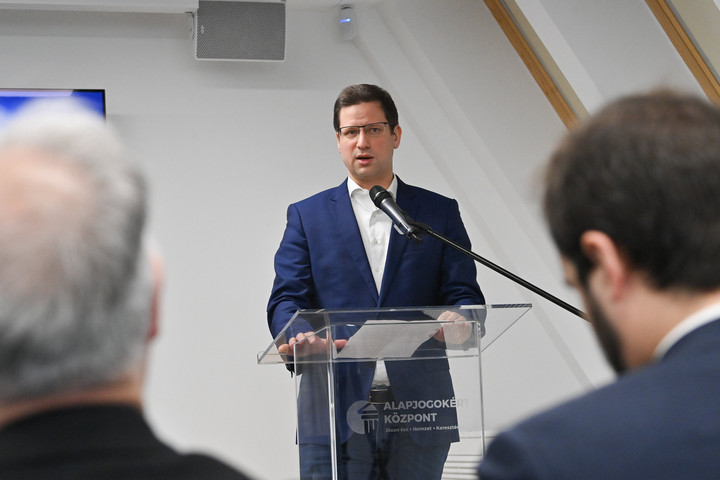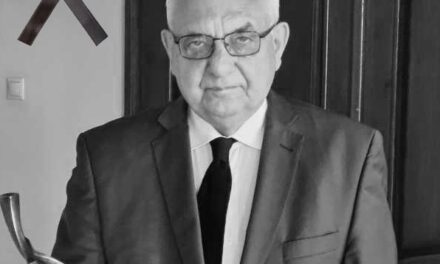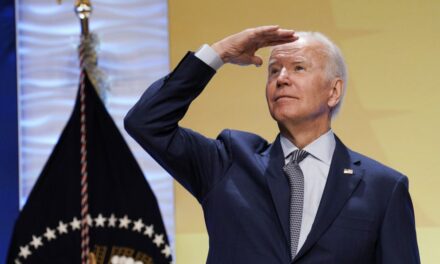Today, Hungary is significantly freer than Western European countries, and the media relations are clear proof of this - emphasized the minister leading the Prime Minister's Office at the Just Wars II. conference in Budapest.
Gergely Gulyás - at the event organized by the Fundamental Rights Center and the Hungarian National Media Association - highlighted: In Hungary, very different worlds of values appear in the mainstream press, everything from the radical extreme left to the radical right has a forum, everything can be found, and everyone has the opportunity to be the Hungarian participate in public debates.
According to him, this is precisely why the debates are more comprehensive and freer than in Western Europe, where the press, which previously called itself conservative, has already given up its positions on all important issues.
Gergely Gulyás stated:
In Hungary, freedom of the press cannot be questioned, everyone can write according to their own convictions, and no one can be stigmatized because of an opinion.
According to the minister, the threat of the 21st century is that left-liberal topics gain exclusivity, and whoever does not accept them cannot be a part of politics. From this point of view, there is a serious resistance in Central Europe, he emphasized, adding:
Central Europe, and Hungary in particular, has not given up on the goal of maintaining normalcy in the future.
Gergely Gulyás said: it is not in dispute that social changes are taking place in Western Europe that do not favor the conservative world. At the same time, the question is whether there will be any principles and fundamentals in society that are otherwise binding society together and capable of operating in the long term, and which everyone accepts as correct and indisputable.
"We see that Western European legislation, the legislation of the western member states of the European Union, has generally gone beyond these issues. They didn't break the bar, but removed the bar once and for all," he said, and then noted that in most countries of Western Europe, the right-wing parties are no longer willing to engage in discussions about the topics that Monday's conference is about.
According to the minister, the EU is trying to strengthen the voice of those forces in each member state that remained in the minority during the elections.
He said that this is an unregistered and anti-democratic attempt to favor those political objectives that did not receive the necessary majority in a democratic contest "by means of blackmail, withholding of funds, threats, and withdrawal of voting rights."
He reminded that in the 19th century, in the period of the formation of modern states, the enforcement of basic freedoms required classical liberalism, which demanded freedom of the press, freedom of expression and freedom of assembly.
However, the classical liberalism of the 19th century should not be confused with the political trend that calls itself that today - pointed out the minister, who believes that there is a good chance that the most important pillars of society will survive in the long term. However, the question is whether the EU will have a leadership and institutions that are able to tolerate the existence of a world of values that opposes the exclusive way of thinking. This is the biggest struggle today, the minister underlined.
He stated:
if we talk about justice wars, we can say that the truth is what sets you free, and freedom is what guarantees that the truth can be written.
According to Gergely Gulyás, in the current situation, the Hungarian government should participate in European public debates, and "think tanks" such as the Center for Fundamental Rights should do the same. The more forums there are for expressing opinions, the greater the chance that the Hungarian policy, which aims to preserve the national character, can be effective in the long term, he stated.
In his opening speech, Miklós Szánthó, the director general of the Fundamental Rights Center, emphasized that the media is a political and sovereignty issue, because if there is no sovereign, Hungarian-owned media, then there is nothing to ensure freedom of speech in Hungary.
Referring to March 15, he said:
As in 1848, there is a freedom struggle going on now, if we talk about the public and the global media situation. The young people of March also fought for the freedom of the press, for the abolition of censorship, so that more alternatives are considered legitimate in the public eye.
He put it like this: Lajos Batthyány's saying is still true today,
even though we stand on the ground of legality and justice, we can only count on ourselves, not fair treatment.
He recalled that while the liberals once fought for general democracy, the classical ideas have now changed, and the liberal, progressive desires ended up simply "devouring" their own results.
Today, it is considered populism to make a statement in the name of democracy - he opined, and then added: they try to limit freedom of speech in the name of political correctness, they try to break the freedom of the press by referring to "fake news", they limit content that does not fit into the liberal mainstream.
Miklós Szánthó cited the German media relations as an example, where, he said, 90-95 percent of the media take the same position on decisive social issues, such as migration or the war in Ukraine, and opinions that differ from it are silenced.
The director-general emphasized that, despite the attacks on the right, it can be clearly stated that Hungary is an island of sanity and media freedom, both vis-à-vis the West and the East. In Hungary, the press and the public are exceptionally free, any political opinion can be published, he emphasized.
Source: Magyar Hírlap
Photo: Noémi Bruzák












